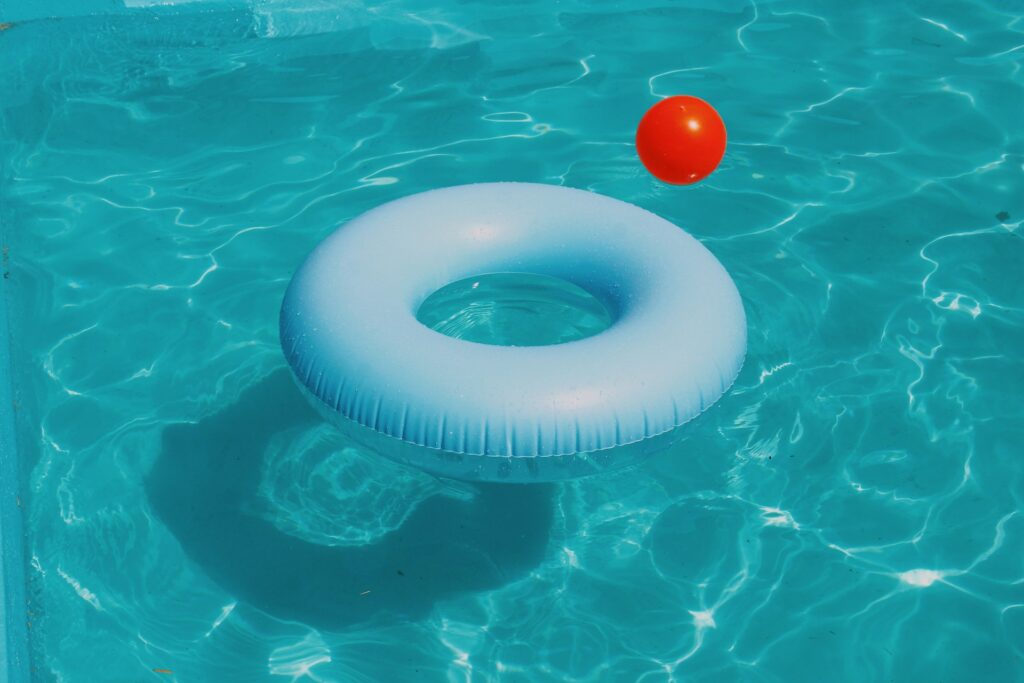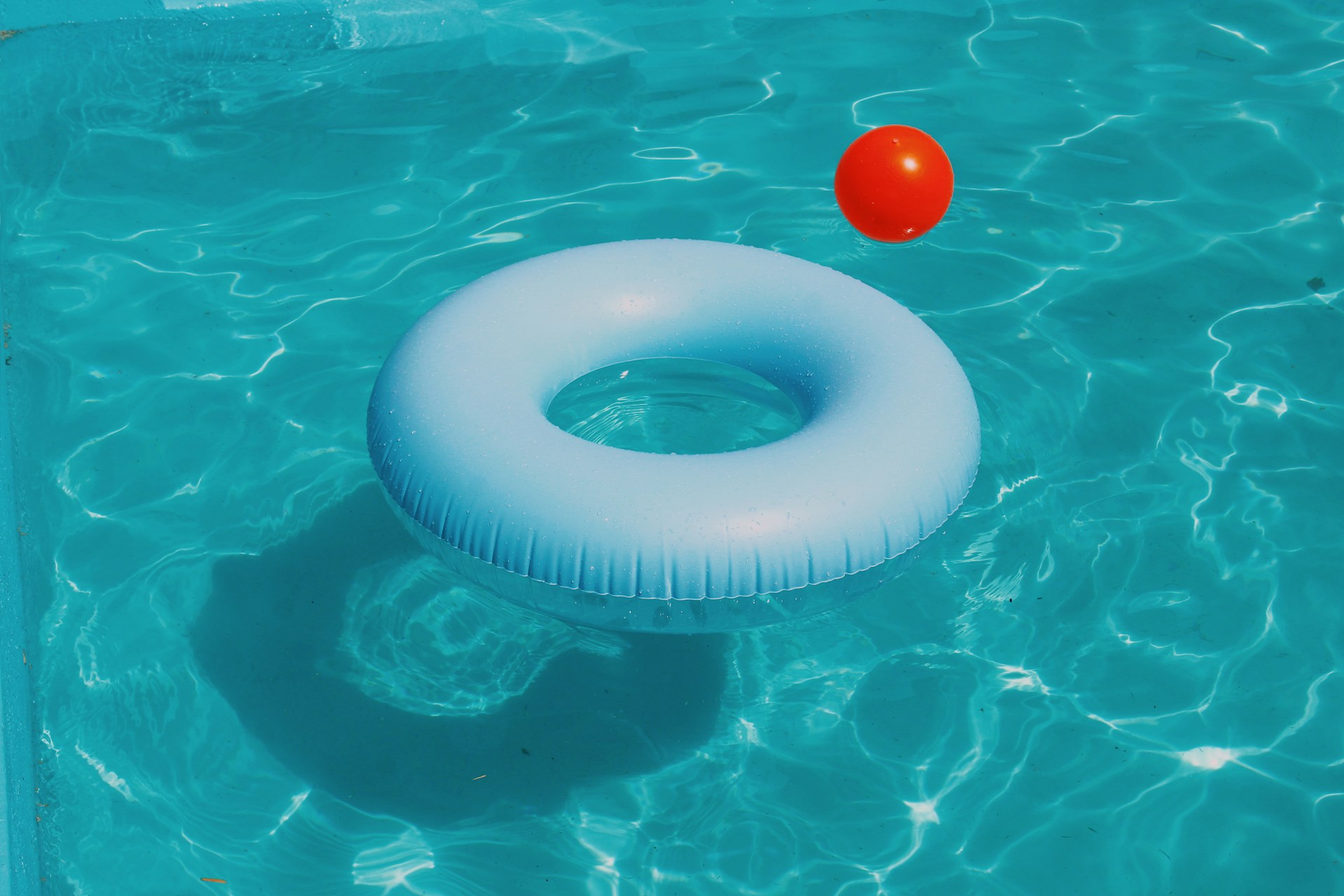What Does Muriatic Acid Do To a Pool?
Muriatic acid is an essential chemical in pool maintenance and helps balance water chemistry to keep your pool in top condition. But what exactly does muriatic acid do to a pool, and how can you use it safely? In this guide, we cover what you need to know about how muriatic acid affects your pool water, equipment, and overall swimming experience.
Learn more: What Is Muriatic Acid and When Do You Add It?
What is muriatic acid?
Muriatic acid is a diluted form of hydrochloric acid that’s commonly used in pool maintenance and industrial applications. It’s a strong acid that must be handled with care, but it’s a must-have for keeping your pool water balanced and clean. Take a closer look at how muriatic acid supports overall pH balance:
How does it work?
Muriatic acid works by neutralizing alkaline substances in pool water, effectively lowering pH and total alkalinity. When added correctly, it disperses throughout your pool to help prevent scaling, staining, and cloudy water. This makes it an essential supply to have on hand for maintaining your pool’s water clarity and protecting your equipment from mineral buildup.
What is muriatic acid used for?
Muriatic acid is used in pool maintenance and other applications. One of its common uses is balancing pool chemistry by lowering high pH and alkalinity levels to keep the water clear and prevent scaling on pool surfaces and equipment.
You can also use it for cleaning pool surfaces and dissolving stubborn stains, calcium deposits, and scale buildup that can form in your pool over time. Outside of pools, it’s commonly used for neutralizing alkaline residues and removing rust and corrosion from metal surfaces.
Muriatic acid vs hydrochloric acid
Muriatic acid and hydrochloric acid are closely related, but they’re not the same. Both contain hydrogen chloride (HCl) as their active ingredient and are highly corrosive, making them effective at dissolving minerals and organic materials. But muriatic acid has a lower concentration of hydrochloric acid and often contains impurities.
It also has a yellowish tint and produces stronger fumes. In pool maintenance, muriatic acid is a preferred choice because it effectively lowers pH and alkalinity. Plus, hydrochloric acid is more applicable for industrial and laboratory use and usually isn’t suitable for household use.
Related: Cyanuric Acid: What It Is and Why Your Pool Needs It
What does muriatic acid do to a pool?
Muriatic acid plays an important part in proper pool maintenance, as it ensures a clean, safe, and balanced swimming environment. Here’s a closer look at what this chemical does when you add it to your pool:
Lowers pH levels

When the pH in your pool gets above 7.8, it can lead to scale buildup, cloudy pool water, and lower chlorine effectiveness. Muriatic acid helps bring the pH back into an ideal range of 7.2 to 7.8 for better water clarity and safe swimming. Muriatic acid also helps prevent eye and skin irritation by keeping your pH balanced for more comfortable swimming.
Removes stains, calcium, and scale
Over time, your pool can develop stains and calcium buildup on the surfaces from mineral deposits in the water. You can use muriatic acid in diluted form to remove these deposits and restore the pool’s appearance, preventing long-term damage.
This is especially useful if you have hard water, where calcium scaling can form along the waterline and on your pool walls. So with regular treatment, muriatic acid helps keep these surfaces smooth and free from unsightly discoloration.
Does muriatic acid affect chlorine levels?
Yes, but it does so indirectly. When your pH level is too high, chlorine gets less effective at sanitizing the water. But muriatic acid will lower the pH and help chlorine work more effectively to keep your pool clean and free of bacteria. This means you may need to use less chlorine overall, cutting the cost of pool chemicals and maintaining a healthier swimming environment.
Learn more: How To Fix Your pH Balance Overnight
What happens if you add too much muriatic acid to a pool?
Adding too much muriatic acid can create a pH imbalance and lead to several potential issues, including:
Damage to pool equipment
Adding too much muriatic acid can corrode pool surfaces, metal fixtures, and equipment like pool pumps and filters. This can lead to costly repairs and wear out your gear more quickly, reducing its longevity. Pool liners and plaster surfaces can also deteriorate over time if the water becomes too acidic.
Causes skin and eye irritation
Swimming in overly acidic water isn’t comfortable or safe and can cause issues like skin irritation, eye redness, and even respiratory issues. It’s important to test and balance your water after adding the acid to ensure it’s safe to swim in.
Can lead to health issues
Breathing in muriatic acid fumes or having prolonged exposure to acidic water can also pose health risks, including respiratory irritation and potential injury from chemical burns. Always handle and store muriatic acid with caution and use protective gear such as gloves and goggles every time to minimize exposure.
Visit the pros at GPS Pools for all your pool pH needs!
Muriatic acid is a powerful product to have on hand for keeping your pool in tip-top shape, but it’s important to use correctly so you can prevent damage and ensure your safety. If you need expert advice or high-quality pool products, GPS Pools is here to help. Visit us today or give us a call for all your pool maintenance needs!

